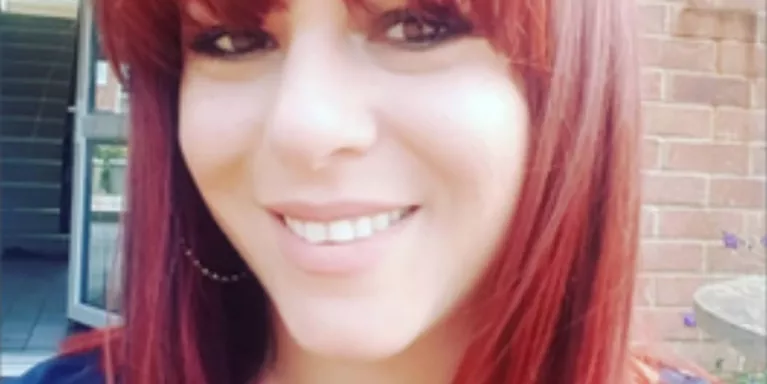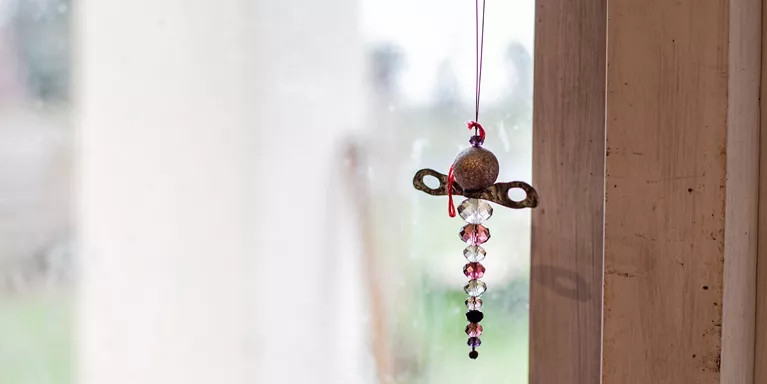We need to talk about Lisa
** The following contains spoilers for current episodes of Eastenders ** Eve worked with Eastenders on their storyline about Postpartum Psychosis as a media volunteer. However, she feels that the way psychosis is handled in current episodes of the programme has been much less sensitive.
Eve (@littlemissevec) gave birth to her son, Joe, six years ago. She uses her experience to raise awareness of postpartum psychosis & improve services.
Over the last week I have been eagerly watching EastEnders, as I had read that a character would experience a mental health condition. I have an interest in this as a couple of years ago I worked extensively with the EastEnders team on a storyline about Stacey Fowler and Postpartum Psychosis, as a real life case study. I struggled with this after my son was born and was delighted when Mind asked me to work with them to inform EastEnders on how to portray the illness realistically and safely, because getting it wrong would have been devastating.
My experience working on the storyline was brilliant. Initially I was unsure - I had awful visions of the character putting her baby in danger to create drama. However, what was so encouraging was that EastEnders were committed to ensuring they didn't create a storyline that wouldn't reflect the reality of the illness and wouldn't lead the public up a garden path of false and dangerous symptoms. And they did it beautifully.
"Mental health storylines in mainstream media like soaps are a fantastic opportunity to show people how mental health problems affect us and to reduce the stigma around them."
We know that soaps are dramatic, and at times storylines are enhanced, but that doesn't mean they don't have a social responsibility to reflect the real life symptoms of something as sensitive as a mental health problem.
However, this week I have been saddened by the way EastEnders have shown a character suffering from psychotic symptoms. Lisa, an ex-girlfriend of Phil Mitchell, and a character who has not been in the programme for years, returns in dramatic fashion. She is visiting her injured teenage daughter, Louise, in hospital but it quickly elevates into a kidnapping plot with Lisa cast as the villain, putting her needs before the safety of her daughter. It focuses heavily on Lisa not being on her mental health medication. All the other characters talk about how Lisa is "in a bad place" and that she is putting her daughter at risk of death.
As someone who has experienced psychosis, this is an incredibly inaccurate and upsetting portrayal of the symptoms and the effect on those around them. There is so much misunderstanding about what it means to experience psychosis or to be 'psychotic'. People assume the label ‘psychotic’ means dangerous or evil and that simply isn't the case. The media often show people with psychosis behaving in dangerous way when the reality is it's incredibly rare for people with a psychosis diagnosis to hurt someone else.
I feel that the current storyline is a stigmatizing and unrealistic portrayal of psychosis - people with psychosis don't really wander around on a daily basis smashing people over the head and denying their children life-saving medication.
Psychosis can make you hallucinate, it can make you have racing thoughts and mania, it can make your mind flip from one thought to another. What it doesn't do is immediately make you want to put your child in danger, which is exactly what the character Lisa is shown to be doing. One of the things that was so good about the postpartum psychosis storyline was that it showed how much Stacey loved her baby.
It seems to me they have brought the character Lisa back just to create drama, and then to validate her bad behaviour, they have dumped a psychosis label on her- she has been labelled with this just to explain her actions. Which would be fine if they were showing real psychosis symptoms and behaviours, but I feel they aren’t.
It particularly saddens me that this portrayal is of a mother. As a peer supporter for mums with mental health issues, the Stacey storyline was almost like a brilliant public service campaign to show that you won't actively endanger your child if you are struggling with mental health. You may have upsetting symptoms, and receive extra support and interactions to assist in your recovery, but it's incredibly rare for a mother to harm their child.
"Real people watch soaps and we owe it to the viewers to portray real symptoms as the positive effect of this can be so enlightening."
There was a great quote on Twitter during the postpartum psychosis storyline: "the incredible power of soaps as an agent of socialization. Postpartum Psychosis in our living rooms". Psychosis, an illness feared for negative reasons built up by the media, was being played into the homes of millions in real time. It focused on many different aspects - the symptoms, the treatment and the recovery, and great care was taken to ensure this was portrayed responsibly and accurately.
The current storyline is planting an idea into viewers’ heads that people with psychosis are a danger to others, and that irresponsible actions, such as denying a child healthcare, are related to psychotic symptoms. It in no way is attempting to show how psychosis is a manageable condition, and is just perpetuating myths. I’ve been horrified to see some of the reaction on Twitter such as ‘When did Lisa go doolally’ and ‘Lisa from EastEnders is an absolute fruitloop’.
I can't state enough how much these episodes have saddened me and how let down I feel for those of us who suffer from a mental health condition. I feel almost that we are being used in a quick attempt to make drama and gain viewers. It’s so disappointing considering the care and accuracy taken in the Stacey storyline. I really hope that EastEnders will return to their careful, considered and well researched approach when next exploring the subject of mental health.


Information and support
When you’re living with a mental health problem, or supporting someone who is, having access to the right information - about a condition, treatment options, or practical issues - is vital. Visit our information pages to find out more.
Share your story with others
Blogs and stories can show that people with mental health problems are cared about, understood and listened to. We can use it to challenge the status quo and change attitudes.

















